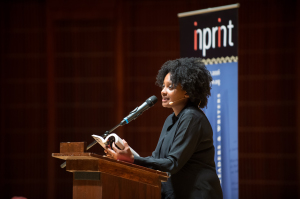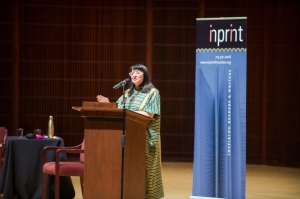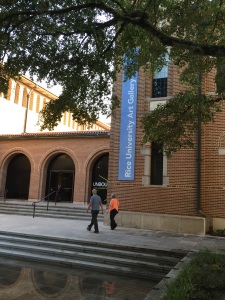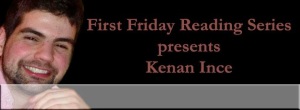Nicole Krauss & Nathan Englander call attention to the radical resilience of cities in post Harvey Houston reading
September 25, 2017, by Charlotte Wyatt
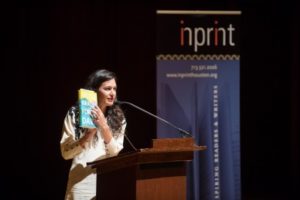 Last Monday’s sudden storms brought uncomfortable reminders of the recent devastation in and around Houston, echoed now in Puerto Rico, and Florida, and other parts of the Caribbean and the Gulf. Those of us who made it to this season’s first installment of the Inprint Margarett Root Brown Reading Series were soggy and a little anxious to come in from the rain. We crowded the orchestra section of Rice University’s Stude Concert Hall, borrowed in the wake of Harvey’s damage to the Wortham Center’s performance spaces.
Last Monday’s sudden storms brought uncomfortable reminders of the recent devastation in and around Houston, echoed now in Puerto Rico, and Florida, and other parts of the Caribbean and the Gulf. Those of us who made it to this season’s first installment of the Inprint Margarett Root Brown Reading Series were soggy and a little anxious to come in from the rain. We crowded the orchestra section of Rice University’s Stude Concert Hall, borrowed in the wake of Harvey’s damage to the Wortham Center’s performance spaces.
But rather than distract us, both Nicole Krauss and Nathan Englander called attention to the radical resilience of cities, and how storytelling can serve that resilience. Their readings addressed the dedication and distress so many of us have recently witnessed and felt.
The excerpts Krauss chose from her new novel Forest Dark explored the threshold of self-knowledge and knowledge of others, and of how we probe and expand the rifts in our personal realities. She spoke of the ways in which writing can invent identity, that writing is often an act of self-invention instead of self-expression: “Each time you tell another story,” she said, “you amplify what it is to be yourself.” Continue reading


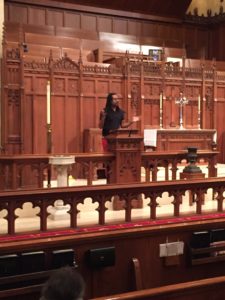 In an event co-sponsored by Brazos Bookstore and Rice University’s Humanities Research Center, National Book Award-winning author of The Underground Railroad, Colson Whitehead, delivered a compelling and improvisational talk on Tuesday, March 21 at St. Paul’s United Methodist Church in the Museum District. After taking an audibly refreshing sip of water, Colson Whitehead launched into a familiar bit. “I was born of poor black child…” he began. The few nerds that instantly recognized the introductory soliloquy from Steve Martin’s cult classic The Jerk knew we were in for a wild ride.
In an event co-sponsored by Brazos Bookstore and Rice University’s Humanities Research Center, National Book Award-winning author of The Underground Railroad, Colson Whitehead, delivered a compelling and improvisational talk on Tuesday, March 21 at St. Paul’s United Methodist Church in the Museum District. After taking an audibly refreshing sip of water, Colson Whitehead launched into a familiar bit. “I was born of poor black child…” he began. The few nerds that instantly recognized the introductory soliloquy from Steve Martin’s cult classic The Jerk knew we were in for a wild ride.